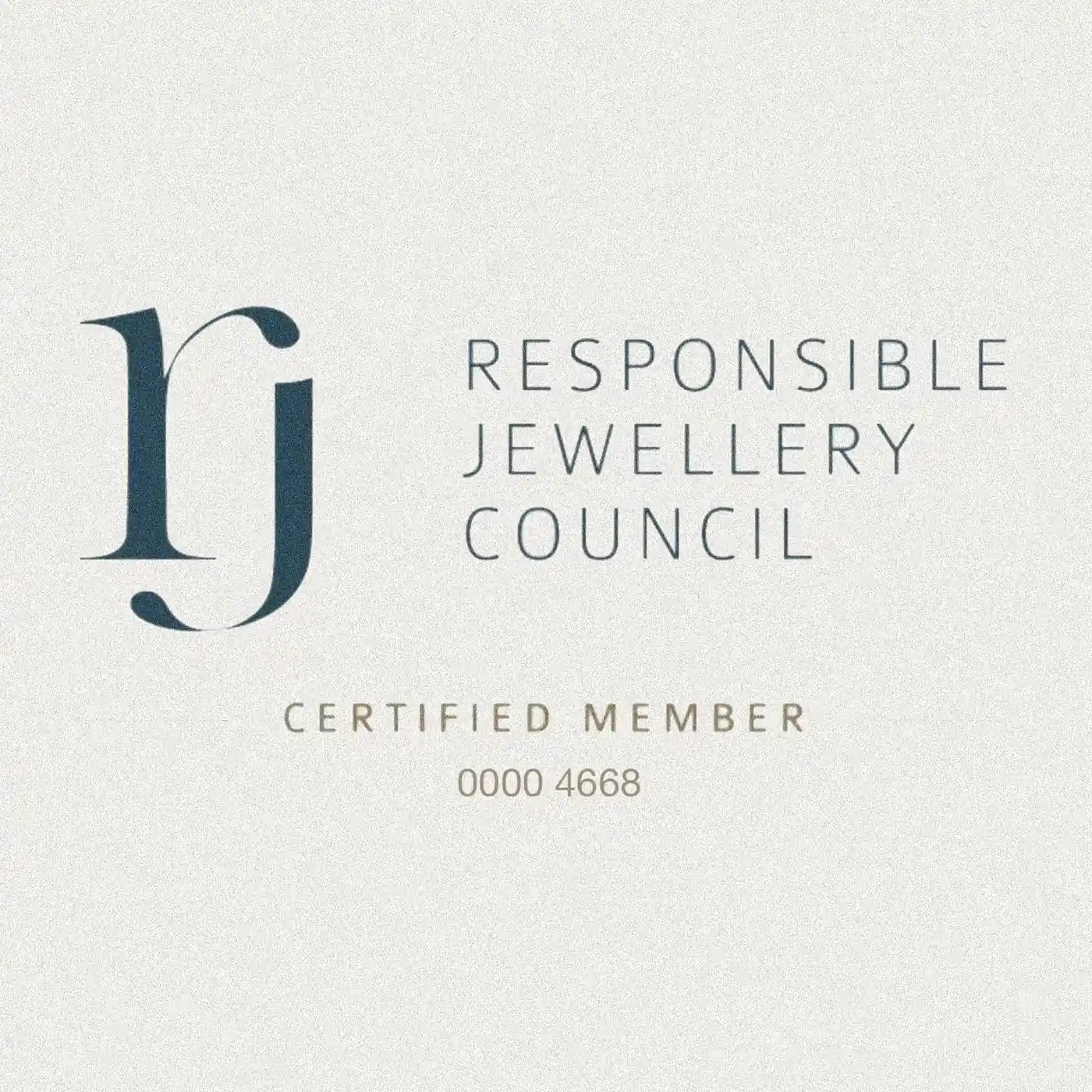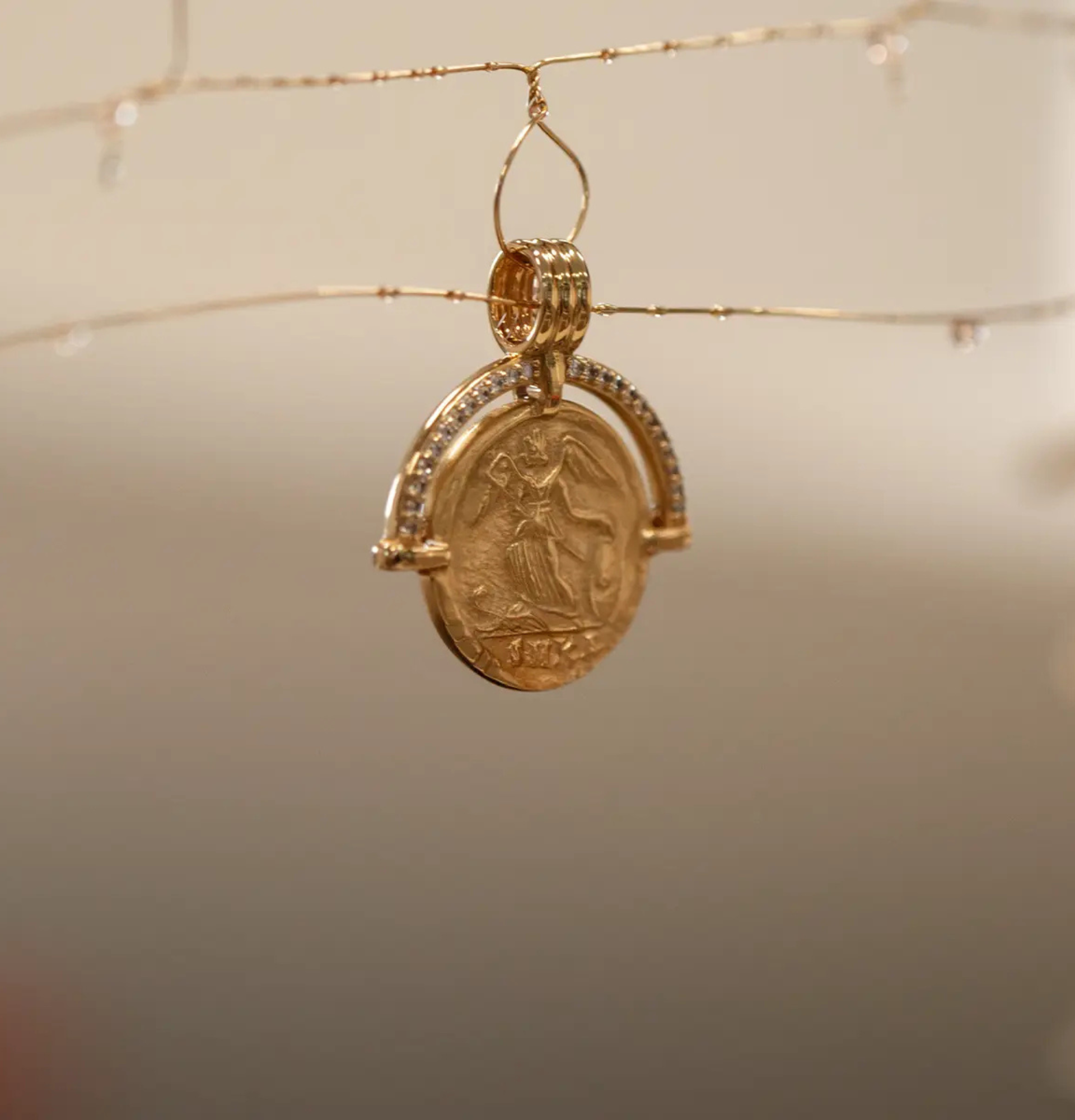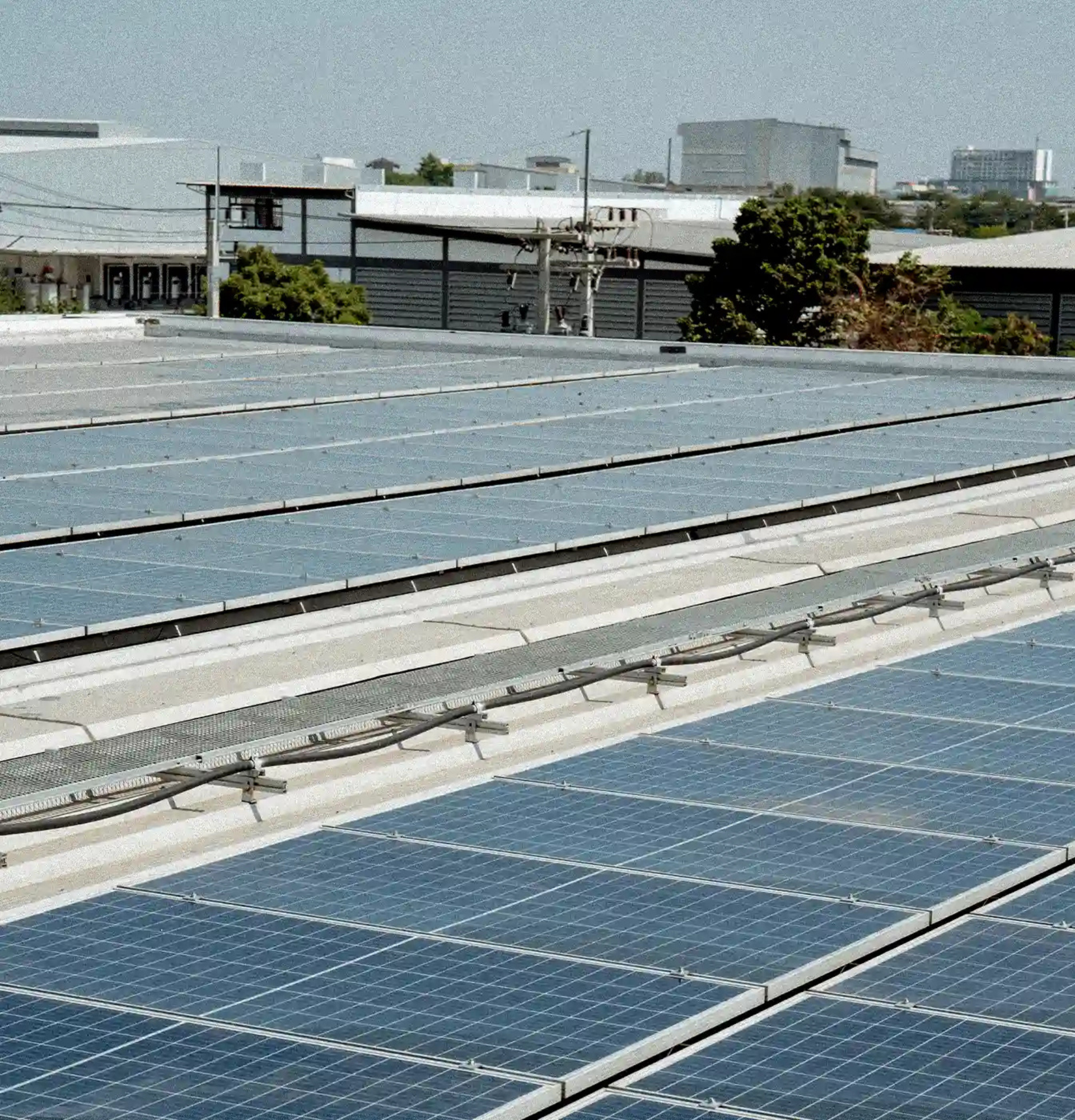SUSTAINABILITY
100% sustainable jewellery doesn't exist, and we know that. Our mission is to continue to take actions across our business — from ethical sourcing to eliminating plastic — to make an impact. We're sharing our journey because we believe in honesty, and transparency.
We're proud to be recognised by these leading sustainable organisations:
“Missoma is setting a new standard for transparency in the jewellery industry, and we’re incredibly proud
to support them in their carbon calculations across deliveries and launching their first Digital Product Passports."
- NAMRATA SANDHU, CEO, CO-FOUNDER OF VAAYU
“We have a responsibility to do better for our community, the people who make our pieces, and for the planet. I’m so proud to lead such a forward-thinking business that has ethical production at the heart of everything we do."
- MARISA HORDERN, FOUNDER & CREATIVE DIRECTOR
SUSTAINABILITY POLICIES
Objectives of the policy
Missoma’s Responsible Sourcing Policy (‘the Policy’) sets out our requirements and some of the practical steps required to comply with Missoma’s Ethical Code of Conduct (‘Missoma’s Code’) and the Responsible Jewellery Council Code of Practice (‘RJC CoP’) link (together to be known as ‘the Codes’).
The Policy is applicable to all stages of the supply chain. It sets out further standards and requirements that all of Missoma’s Suppliers must uphold, highlighting Missoma’s way of working, bringing focus to crucial industry specific requirements. In this Policy the term ‘Suppliers’ refers to all factories, suppliers, subcontractors, partners and agents.
The Supplier is responsible to ensure the Policy is fully implemented and adhered to. By supplying Missoma you are agreeing to uphold the Codes and adhere to the Policy. Failure to do so could result in all work with you being immediately suspended or completely banned.
We are also proud to be a member of several high profile and important ethical and sustainability collectives, including the Responsible Jewellery Council and the UN Global Compact. We strive to ensure that the suppliers we choose to work with are also members of these schemes, or are working towards membership.
Sources of the policy
• OECD (2016) OECD Due Diligence Guidance for Responsible Supply Chains of Minerals from Conflict-Affected and High-Risk Areas: Third Edition - link
• Responsible Jewellery Council Code of Practice 2019 - link
• The Ethical Trading Initiative Base Code - link
• The United Nations Universal Declaration of Human Rights - link
• The European Convention of Human Rights - link
• The Fundamental Conventions of the International Labour Organisation (‘ILO’) - link
• Modern Slavery Act 2015 (UK legislation) - link
On-boarding and working together
ON-BOARDING NEW SUPPLIERS AND FACTORIES
During the process of on-boarding new factories, we need to ensure the factory’s ethical standards align with Missoma’s expectations. We require full visibility of all new Suppliers intended to be used for production and have a strict approval process in place which must be followed for all new factories.
Every prospective Supplier must submit a New Supplier Profile Form. In addition, the Supplier needs to provide a valid third-party audit to the Design Team.
Missoma will only approve a factory when satisfied with the audit and/or progress made on the Corrective Action Plan (‘CAP’).
Neither sampling nor bulk production can occur without written approval from Missoma’s Design Team.
Once Suppliers have been officially approved through the onboarding procedure, bulk orders can be made.
ON-BOARDING SUBCONTRACTORS
For both current and new Suppliers, any component or process subcontracted must be pre-agreed with Missoma in writing. Every subcontractor unit must be added to the factory profile. The Supplier is responsible for ensuring the subcontractor details are correct and that they understand and comply with the Codes.
For further information on the factory approval process, audits or subcontracting, please contact the Design Team at Missoma.
SUPPLIER VISITS
Missoma’s Design Team visit Suppliers as regularly as possible; this is to build and maintain important relationships and to check the standards of the factories where Missoma’s products are made. These visits will consist of:
All assessments and CAP reports (if needed) will be based on this Policy and the relevant Code, so it is important you familiarise yourself with these documents to ensure you are adhering to Missoma’s standards.
TRANSPARENCY & TRACEABILITY
It is essential that we know where our products are made, not just the final product, but all components including chains, gemstones and findings for jewellery and non-jewellery. We are beginning to map Missoma’s supply chain and will be doing this initially through the New Factory Profile Form.
It is the responsibility of the Supplier to keep this information up to date.
Working practices
HOMEWORKERS
Missoma supports the empowerment of women through the provision of ‘Homeworking’ as part of the manufacturing process. Written permission from Missoma must be received before the Supplier can use Homeworkers to produce Missoma’s product. If permission is granted, it is the Supplier’s responsibility to ensure all Homeworking adheres to the Codes.
The Supplier must be fully transparent and maintain records of all homeworking practices used for Missoma production and must facilitate visits and reviews when required by Missoma’s Team or appointed 3rd party.
TEMPORARY WORKERS, CASUAL WORKERS, AGENCY & SHORT-TERM CONTRACTS
Missoma stipulates that employment should be regular and performed through a recognised working relationship established by national law and practise. The use of temporary, short term, agency, or casual working on a regular basis for the long-term or multiple short-terms to benefit the employer shall be avoided. Missoma understands there may be instances where use of non-standard employment is essential; in these instances, obligations to temporary employees shall not be avoided. All temporary, casual, agency and short-term workers must have clear contracts which must contain terms that entitle the employee to all advantages afforded to permanent employees.
MIGRANT WORKERS
Many factors can influence or force workers to migrate in search of security, opportunity, and employment. These factors can mean that ‘Migrant Workers’ are vulnerable to exploitation. Suppliers are responsible for ensuring that all Migrant Workers are employed responsibly, this means that Migrant Workers are employed legally, not indebted to agencies and that their rights and welfare are safeguarded.
HUMAN RIGHTS AND MODERN SLAVERY
Missoma recognises our responsibility to promote responsible and fair employment practices throughout our supply chain. We work closely with our Suppliers to continuously improve conditions of all factories used to produce Missoma product. In addition to requiring compliance with the Codes, Missoma’s Suppliers must also ensure that they take all reasonable steps necessary to eliminate the risk of Modern Slavery.
Modern Slavery: Missoma is committed to avoiding any form of Modern Slavery in our supply chain, please refer to our Modern Slavery Policy here.
Child Labour: Due their age, children are particularly vulnerable to exploitation and Modern Slavery. Missoma is committed to eradicating any form of child labour and child slavery. Accordingly, child labour is not to be used under any circumstances and Suppliers must ensure that all employees meet the minimum age requirement set by local laws.
Remember: Missoma will work with Suppliers who bring to our attention issues in their factories or within their supply chains. Where possible, we want to help mitigate these issues and find resolutions. We cannot do this unless Suppliers raise these issues at an early stage. Potential risks or concerns relating to Modern Slavery or other human rights abuse within Missoma’s supply chain must be communicated as soon as possible.
Report any issues relating to this to your Missoma contact.
Material sourcing
As part of our commitment to making quality products for our customers we also aim to reduce their ethical and environmental impact. Material selection is an important part of improving the sustainability of our collections by minimising our reliance on freshly mined minerals or virgin raw materials we can reduce our carbon, water, and waste footprint.
As a business Missoma has committed to strict targets for specific materials, these include, but are not limited to:
- 50% of the silver in our products to be recycled silver by end 2021. Update - January 2023: we can confirm all silver lines are ordered in recycled silver.
- 50% of the gold used in plating (Gold Potassium Cyanide or ‘GPC’ to come from recycled sources by end 2021. Update – January 2023: We can confirm that all plating is recycled.
- 100% of diamonds to come from Kimberley Process Certified sources.
- 100% of the gold used in 14ct solid gold products must come from recycled sources.
SUSTAINABLE MATERIALS PRIORITY LIST
To help reduce the environmental impact of our products, Missoma wants to increase the percentage of sustainable materials we use. Suppliers can influence the use of more sustainable materials by helping Missoma choose these when deciding which materials to source.
Examples of sustainable materials are:
Recycled Silver: Recycled Solid Gold and Recycled Gold Plating (GPC)
Recycled Brass: Brass is an alloy made predominantly with copper and zinc. The percentage mix can vary, but copper tends to make up between 80-90%. We are working towards sourcing a certified recycled brass.
Traceable Coloured Gemstones:
Coloured gemstones are known to have complex supply chains with very little transparency. It is important to Missoma that we source coloured gemstones from transparent and traceable sources. Our aim is to eventually be able to trace all coloured gemstones back to the mine.
Traceable Fresh Water Pearls: The farming of Fresh Water Pearls can cause harm to the surrounding environment, it is therefore important that we know the source of the Fresh Water Pearls used in our products.
Our Suppliers are industry experts so, please help to keep us informed on any developments within sustainability and show us examples of lower impact and innovative materials.
banned & restricted materials
Missoma’s Banned and Restricted Materials list encompasses all materials which will not be sourced or used under any circumstance in any of Missoma’s products. All Suppliers must comply with this list.
CONFLICT MINERALS
Companies involved in mining and trade in minerals from conflict-affected and high-risk areas (‘CAHRAs’) are at risk of contributing to human rights abuses and violations of national or international law. Missoma is fully committed to the responsible sourcing of raw materials and strive towards a supply chain free from conflict minerals. To ensure this, we adhere to the OECD Due Diligence Guidance for Responsible Supply Chains of Minerals from Conflict-Affected and High-Risk Areas and expect our factories and raw material suppliers to do so as well.
Diamonds: We only accept diamonds sourced by Suppliers who are members of the RJC and who comply with the Kimberley Process Certification Scheme and World Diamond Council System of Warranties.
Gold: We only accept conflict-free gold sourced from refiners that are either RJC Chain of Custody certified or have been accredited the Good Gold Delivery List of the London Bullion Market Association.
Endangered Species (non-jewellery only): In accordance with the Convention on International Trade in Endangered Species (‘CITIES’) and International Union for the Conservation of Nature (‘IUCN’) list, Missoma prohibits the use of materials from endangered species in our products.
Leather (non-jewellery only): No animal will be slaughtered solely for use within a Missoma product. All skins utilised in Missoma’s products must be by-products of the meat industry. We will not use any skins from animals that have been boiled or skinned alive. We will not use Karakul, Slink or other leathers that are from unborn animals.
Uzbek, Turkmen, and Xinjiang Cotton (non-jewellery only): Missoma prohibits the use of cotton sourced from Uzbekistan, Turkmenistan, and Xinjiang in all products. This is due to documented reports of industry-wide and systematic human rights violations, including the occurrence of child labour and forced labour in the harvesting of cotton. Missoma does not tolerate these practices and therefore prohibits the use of Uzbek, Turkmen & Xinjiang cotton in our products.
Reporting and certification of sustainable & restricted materials
To help meet Missoma’s sustainability commitments and ensure accurate reporting on sustainable and restricted materials, it is important that we verify the authenticity of the material’s source. To do this we require specific documentation and certification.
Requirements for Recycled Metal (adaptable for other certified recycled or organic materials):
Missoma's Responsibility
• All POs to be issued stating requirements for sustainable and/or restricted materials. For example, recycled silver and recycled gold.
Supplier Responsibility
• All Supplier invoices to state that the silver and gold was sourced as recycled from their metal supplier and that their metal supplier is RJC certified, preferably RJC Chain of Custody (‘CoC’) certified.
• Quarterly copies of invoices between factory and factory sources of recycled silver and gold/gold plating, stating the metal is recycled and that they are RJC certified.
and either:
• Quarterly copies certificates from factory metal sources that confirm the metal sources are recycled
Or
• Quarterly copies of CoC transfer document.
This specifies:
• the certification numbers of the refinery/metal supplier and the jewellery factory
• the type of CoC material being transferred e.g. recycled, Fairtrade or Fair mined
• the weight of CoC materials transferred from the refinery to the jewellery factory.
• Specifies the invoice number and company details including address etc.
Requirements for Diamonds:
Missoma's Responsibility
• To ensure that Missoma only purchases conflict-free diamonds we adhere to the Kimberley Process and the World Diamond Council (‘WDC’) System of Warranties (‘SoW’).
• When purchase orders are placed with Suppliers for diamond product, we must state that diamonds are to originate from legitimate sources not involved in the funding of conflict, in compliance with UN resolutions and corresponding national laws.
• To ensure that Missoma does not purchase lab-grown or treated diamonds without our knowledge we must adhere to the WDC SoW.
Supplier Responsibility
• To ensure the diamonds we purchase are conflict-free we require the factory to adhere to the Kimberley Process and the WDC SoW. We require the factory to provide:
• Invoice between jewellery factory and Missoma including the diamond warranty statement:
“The diamonds herein invoiced have been (sourced) purchased from legitimate sources not involved in the funding of conflict, in compliance with UN resolutions and corresponding national laws (where the invoice is generated). The Seller hereby guarantees that these diamonds are conflict free and confirms adherence to the WCD SoW Guidelines”.
• Invoice between diamond supplier and jewellery factory which also includes the diamond warranty statement.
• To ensure Missoma does not purchase lab-grown or treated diamonds without our knowledge we require the factory provide:
• Invoice between jewellery factory and Missoma including the World Federation of Diamond Bourses (‘WFDB’) statement:
“The diamonds herein invoiced are exclusively of natural origin and untreated based on personal knowledge and/or written guarantees provided by the supplier of these diamonds.”
Inbound packaging
As part of our commitment to reduce environmental impact across our business, we request that all jewellery suppliers deliver in-bound product in bio-degradable/recyclable poly bags. All suppliers work with a supplier, who offer a certification that the poly bag is bio-degradable.
Membership of ethically and sustainably minded schemes
UN Global Compact
The UN Global Compact is the world’s largest corporate sustainability initiative. It provides an international strategy for corporate responsibility and a framework to guide businesses of all sizes in all parts of the world. Missoma is proud to be a member of the Compact and we are making it our mission to ensure that all Missoma suppliers are also members. We are delighted that currently all key jewellery suppliers are already members, as well as our packaging supplier.
More information can be found here: UN Global Compact
UN Women’s Empowerment Principles The UN has formulated seven Principles to help empower women in the workplace, marketplace and community. Missoma has signed up to its commitment to honouring the Principles in all aspects of our business. We strongly encourage all of our suppliers to do the same.
More information on the principles can be found here: UN Womens Empowerment Principles
Environmental CertificationIn furtherance of our mission to protect the environment and particularly the environment in which our suppliers source and manufacture, we ask all of our suppliers to be ISO 1401 2015 certified, or hold certification of a similar standard.






